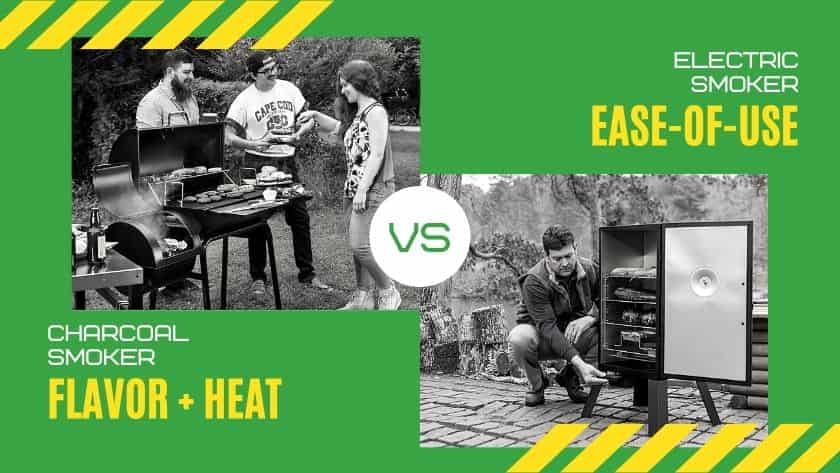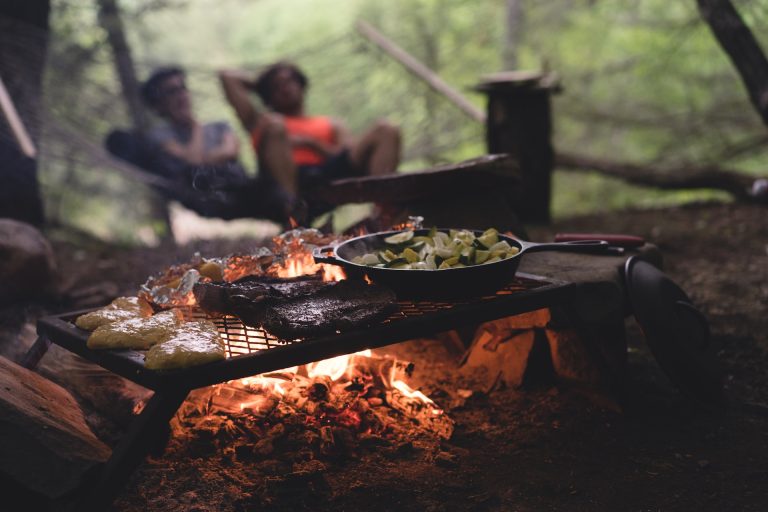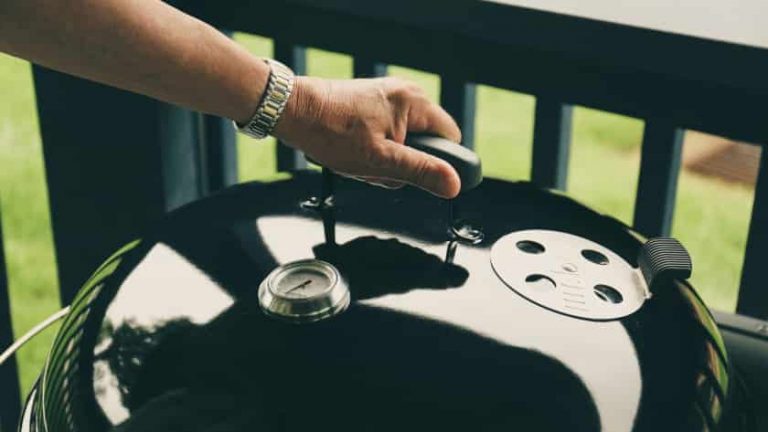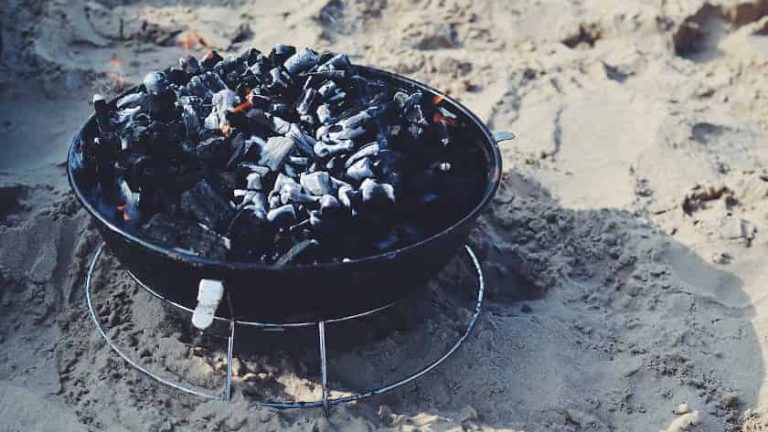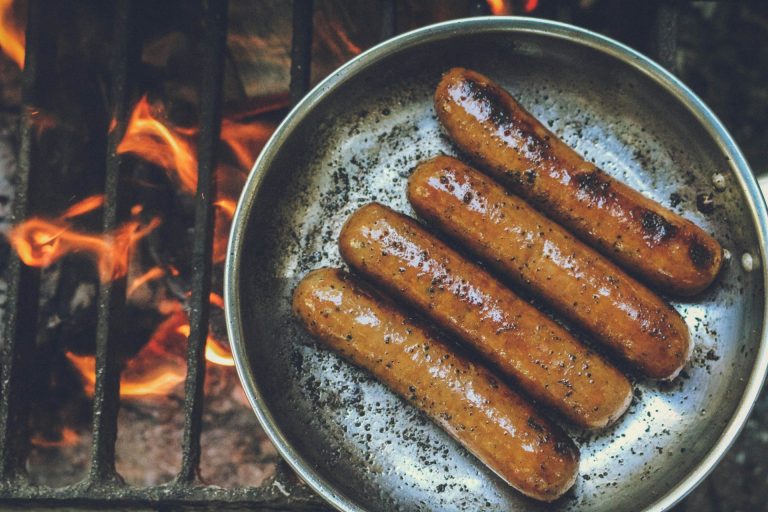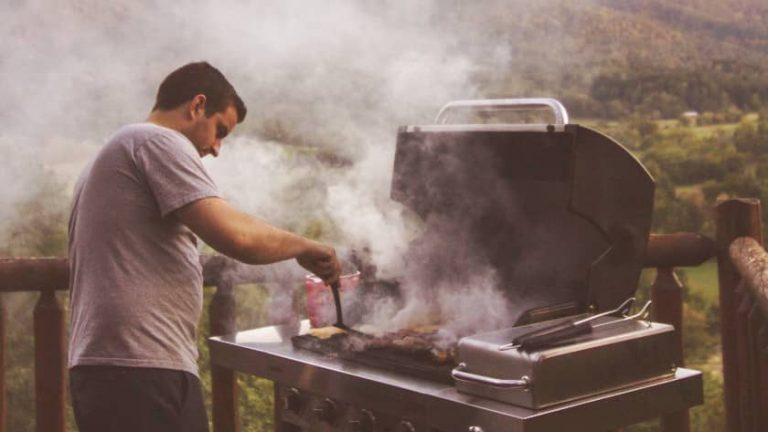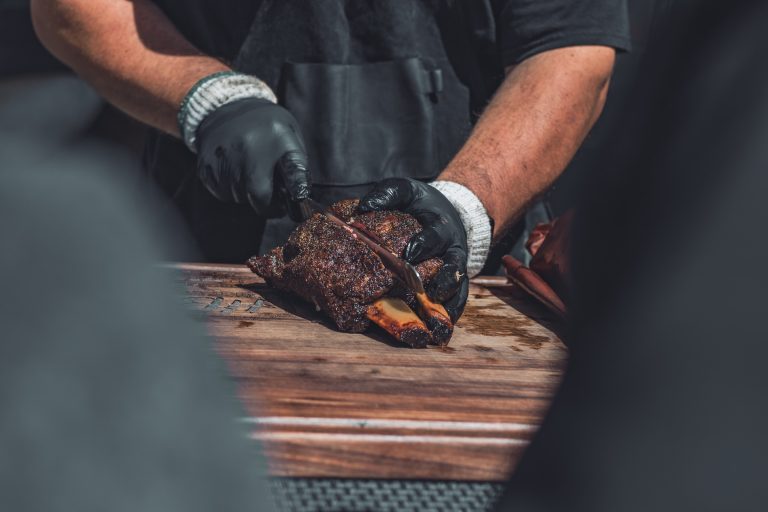Charcoal Smoker vs Electric Smoker: Which Is Better?
Having a smoker allows you to create an incredible assortment of dishes whenever you want. A smoker’s ability to cook low and slow with dry heat while imparting unique smoky flavors is unparalleled, making it the absolute king when it comes to many types of meat and fish.
Smokers are expensive, however, and there are a wide variety of smokers on the market.
The two big categories, charcoal smokers and electric smokers, have their own sets of advantages and disadvantages. Here’s a quick rundown on which one you should choose and why.
Charcoal vs Electric Smoker: Which Is Better?
Without getting too deep into things, the answer is very much “it depends.” Both charcoal and electric smokers have a unique set of advantages and downsides that might make either option better in different applications and different environments.
In general, charcoal smokers create slightly better tasting meat, as you get a distinct charcoal flavor, can produce more heat, and can work while it’s wet.
They can be difficult to use, however, and they need constant attention.
They also don’t always work well when it’s windy.
By contrast, electric smokers are often easier to use, as they’re controlled by knobs and logic circuits, allowing you to set a temperature and then step away until your food is done.
While they work fine in the wind, it’s usually a terrible idea to use them when it’s wet, and they can sometimes struggle to generate enough heat to cook food when it’s cold outside.
As your budget increases, many of these downsides start to vanish. You can find modern charcoal smokers with thermostats that automatically adjust the baffles, enabling you to set them up and forget them.
Some can even be controlled by your smartphone while you’re at work.
Higher-end electric smokers have additions that try to add flavor to your meat while they cook, waterproof circuitry, and powerful heating elements that can overcome the cold.
How Smokers Work
Smokers are fairly simple machines at their core. They’re essentially just insulated boxes with a heat source. Where smokers differ from other cooking implements is the arrangement and power of that heat source.
In a smoker, the heat source doesn’t just heat your food. It also heats charcoal or wood chips, getting them hot enough to slowly release smoky flavors that penetrate your food.
Smokers generally are used to cook food for a long time over low heat. This means that the heat source can be quite weak when compared to ovens, grills, and other cooking apparatuses.
Some smokers can reach 500 F or more, giving them the power to sear steaks. If this is a thing you’re interested in, be sure to verify that models you’re considering support high-temperature cooking.
How Charcoal Smokers Work
Charcoal smokers use actual charcoal fire to generate their heat. The most basic charcoal smokers involve a firepit at the bottom, a chamber to hold your food, and a chimney on the top.
Baffles at the chimney and around the firepit allow you to modulate the amount of air that reaches the fire and control the heat. In order to operate a charcoal smoker, you’ll have to put fuel in the smoker, light it, and then manipulate the baffles to control the heat.
If you’re cooking for an especially long time, you might have to add more fuel as your first batch runs out.
Charcoal smokers can usually be used with other types of fuel, but you might find some with fancy feeding mechanisms that require specific shapes of briquettes.
Some higher-end charcoal smokers have thermostats that hook up to motorized baffles, enabling you to step away while your smoker maintains a constant, perfect temperature.
You might have to add fuel still, depending on your model and the length of time you intend to cook. The thermostats aren’t always perfect, but they tend to be consistent, enabling you to adjust for any measuring errors.
As you’re heating food with an actual fire, charcoal smokers naturally add all sorts of complex and rich flavors to the food you cook in them.
You can modify these flavors by using different types of charcoal or experimenting with different kinds of food-safe hardwood sprinkled in your fuel.
When it comes to heat, charcoal smokers are limited by fuel and time as well as the size and shape of the firepit and baffles. Most charcoal smokers can get pretty hot, but not all of them can produce enough heat to properly sear a steak. Again, check the models you’re looking at to get an idea of their heat capabilities.
How Electric Smokers Work
Electric smokers use an electric heating element to produce their heat. This heating element is placed directly below a pan that’s filled with wood chips or charcoal.
As the pan heats up, the contents smolder, releasing some smoky flavors into the food above. Heat is controlled by simply adjusting the power of the electric heating element, making adjustments simple.
Many electric smokers come with thermostats to make the process entirely automatic. The flavor added by electric smokers is quite artificial.
It’s a bit weaker than the flavor you get from a charcoal smoker, due to both the lower quantity and lower heat applied to the wood chips or charcoal that’s supplying the smoke.
It’s definitely there, and it definitely tastes good, but it’s not going to stand up to a side-by-side taste test vs something cooked in a charcoal smoker.
You can, however, modify these flavors by changing the type of wood you use or how many chips you put in.
As far as heat goes, electric smokers often struggle to hit high temperatures, especially if it’s cold outside. This often isn’t an issue, as you tend to use a smoker to cook low and slow.
If high heat is a priority for you, be sure to examine the heat output of the models you’re considering.
Charcoal vs Electric Smokers: The Full Scorecard
So how does it all add up? Here’s a quick list of the big things that separate charcoal and electric smokers and a rundown of how both types perform.
Heat
Charcoal smokers tend to be able to produce more heat, especially if they’ve got a big firebox. Offset smokers with small boxes may struggle in this department, but they still tend to outperform low-end electric smokers.
Raw heat usually isn’t an issue for smoking food unless it’s very cold outside, but it can let you do some creative cooking in your smoker instead of the usual low-and-slow.
An electric smoker has a limited temperature range of about 100-275 °F (38-135 °C); in contrast charcoal smoker have wide temperature range between 125 °F to 350 °F.
Verdict: Charcoal wins.
Moisture
Electricity and water do not get along. If there’s any rain, snow, or even heavy fog, you probably shouldn’t use an electric smoker outdoors.
Any electric smoker should be carefully covered while it’s not in use to avoid moisture getting into critical electric components. Simple charcoal smokers don’t care about water at all, as they don’t have any electrical parts.
As you start to add thermostats and electric baffles, however, you add more vulnerabilities to moisture, necessitating dry use and careful covering.
Verdict: Charcoal wins.
Flavor
If you are into smoking and like authentic taste its better to use wood or charcoal than electric smokers. In fact Authentic Meat Taste is the number one reason to purchase a charcoal smoker.
The only thing generating heat in a charcoal smoker is a charcoal or wood fire, which is carefully vented into the cooking chamber for maximum exposure to smoke.
It’s tough to beat this level of dedication and efficiency in an electric smoker. Electric smokers try, but they’re noticeably worse at adding flavor to your food. When it comes to cooking, however, there’s no real difference.
Pork tastes just as porky in both types of smokers. It just tastes less smoky out of an electric unit.
Verdict: Charcoal wins.
Ease-of-Use
When comparing a simple charcoal smoker to a simple electric smoker, this comparison isn’t close. A charcoal smoker needs you to start a charcoal fire, fuel it, and control its heat output by regulating airflow.
These are all things that will take practice to do well. Even if you’re an expert at the processes, you still have to do them. Electric smokers, by contrast, require you to plug them in and turn a dial.
More complicated charcoal smokers can do some or all of these things for you.
You’ll still need to put fuel in a hopper somewhere, but they might start themselves, move fuel from the hopper to the firebox, and move the baffles based on thermostat feedback.
These models tend to be expensive. They’re also still a bit harder to use than electric smokers, as you have to provide fuel.
Verdict: Electric wins.
Wind
Fires need air. When they’re subject to wind, however, they can go out suddenly. Charcoal smokers are very vulnerable to changes in airflow.
While some units have some physical considerations that try to reduce the effect of wind on your charcoal fire, they’re not perfect. Electric smokers, by contrast, do not care about wind at all.
Verdict: Electric wins.
Warranty + Cooking Capacity
Charcoal smokers in general are associated with large size smokers but actually are highly comparable with electrics. They came in varying sizes from small to king size smokers.
In contrast electric smokers are only available in small to mid size options.
Electric smokers also lacks in warranty; they typically came in with 1-3 years of warranty while traditional offset smokers offers between 3 to 10 years of warranty.
Verdict: Charcoal wins.
Fuel
Charcoal smokers will require you to put charcoal in them. Without charcoal (or wood chips or another alternative fuel source), they won’t work at all. As this fuel is the only source of heat to your food, you’ll need a decent amount.
Electric smokers use electricity as their primary fuel source. While they’ve got pans to add chips or charcoal to add flavor, these are somewhat optional.
You don’t need to add a lot, and your smoker will still make heat if you suddenly run out. The chips and charcoal also tend to last a lot longer than in a charcoal smoker, as it’s not burning quickly.
Verdict: Electric wins.
Final Verdict
Ultimately, the type of cooking you intend to do, your budget, and your willingness to manage a charcoal fire should determine the type of smoker you get.
If you’re a hands-on kind of person, you might enjoy a basic charcoal smoker tremendously, as it’ll give you a chance to really get involved in the cooking process.
If you want to set up a smoker in the morning and have smoked meat for dinner, an electric smoker might be a better choice. If you’re willing to spend more, consider a charcoal smoker with electronic thermostats and motorized baffles to try to combine these benefits.
You’ll still have to provide fuel, but get the best of both worlds in terms of temperature, taste, and ease of use.
Related Post To Consider
Are Broil King Grills Any Good? Know This Before Buying!
11 Best Pellet Grills And Smoker Brands for 2022
